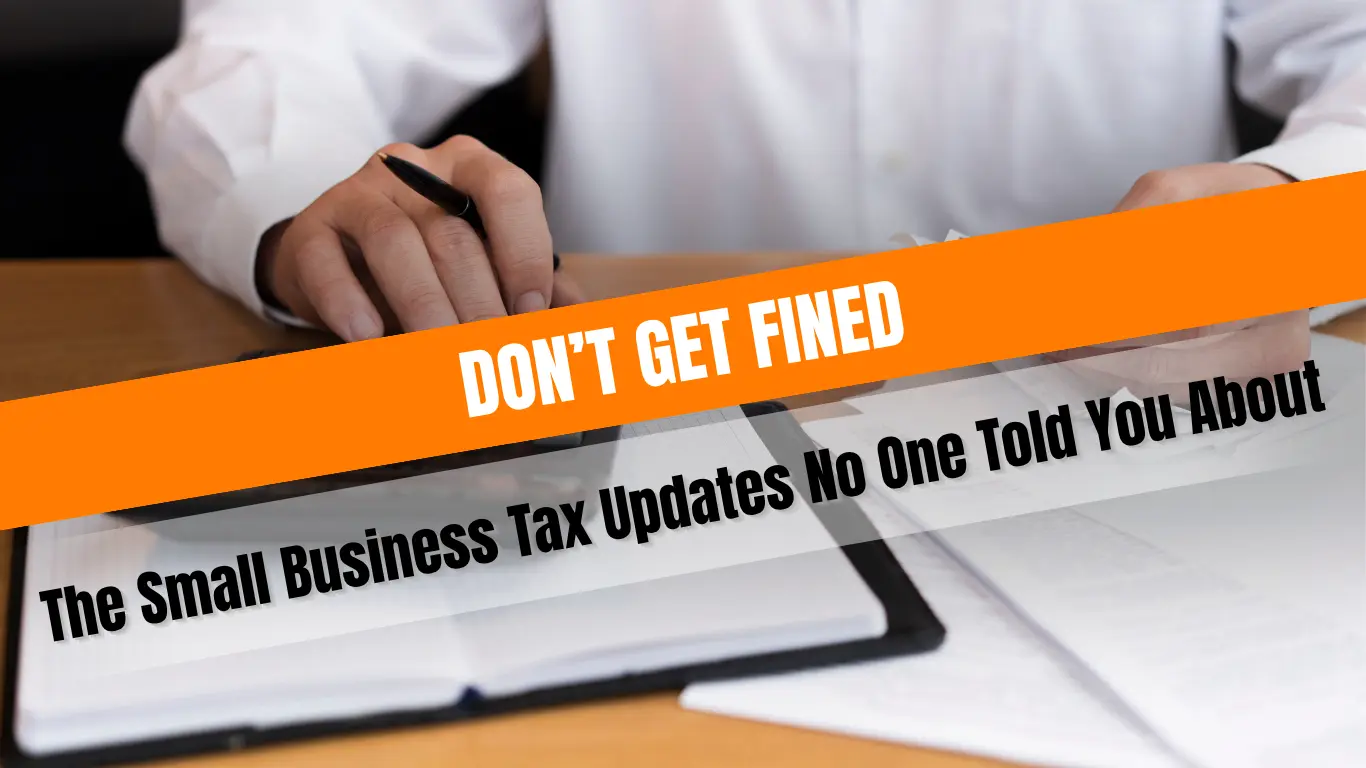
As a small business owner, you probably already find the whole taxation and compliance process a hassle that prevents you from focusing on your business. However, ensuring your business is aligned with the latest tax and compliance updates will help ease financial stress and reduce the risk of costly surprises.
In 2025, the tax code received a comprehensive makeover in the form of the One Big Beautiful Bill Act. Apart from this, new reporting rules for digital payments and fresh compliance mandates from the Department of Labor and FinCEN have been implemented. All of these new regulations are potential fines waiting to happen if you accidentally slip up in compliance.
That's why in this blog, we break down what's changed, what's new, and what you absolutely need to know to stay compliant and confident.
The One Big Beautiful Bill Act: What It Means for You
Let's begin with the most prominent changes ushered in this year, the One Big Beautiful Bill Act. Signed into law in late 2025, the One Big Beautiful Bill Act (OBBBA) was meant to be a pro-growth, pro-simplification tax reform. For small businesses, it delivers both relief and responsibility.
Here's what small business owners need to know about the OBBBA:
1. QBI Deduction Made Permanent
The 20% Qualified Business Income deduction for pass-through entities is now permanent, with higher income thresholds. That's great news if your business is structured as a sole proprietorship, LLC, or S corp. But the math behind it is still complex, and misreporting W-2 wages or business type could shrink your deduction or trigger an audit.
2. Bonus Depreciation Extended
Businesses can continue to write off 100% of qualifying asset purchases in the year they're placed in service. This helps improve cash flow, but requires accurate asset tracking and documentation.
3. Simplified Filing for Micro-Entities
If your gross receipts are under $500,000 and you operate digitally, you may qualify for streamlined filling. But for this, you would need to opt in and meet specific criteria.
Digital Payment Reporting: The 1099-K Curveball
If you are a gig worker, an online seller, or receive payments through third-party platforms like PayPal, Venmo, etc., you are required to submit Form 1099-K. However, the frequent changes to reporting requirements can make the process confusing. In 2025, the IRS delayed full enforcement again as the rules were still evolving. But the one big beautiful bill has provided some clarity on this compliance issue.
1. Thresholds Restored
Third-party payment platforms like PayPal, Venmo, and Stripe must issue 1099-Ks if you receive over $20,000 and have 200+ transactions. But even if you don't hit those numbers, you're still responsible for reporting all taxable income.
2. Reconciliation Is Key
If you receive a 1099-K, make sure it matches your actual business income. Mismatches can trigger IRS notices or backup withholding.
3. Marketplace Sellers Beware
If you sell on Etsy, eBay, or Amazon, expect tighter scrutiny. Platforms are required to report more in-depth data. Moreover, you will have to maintain clean records to avoid overreporting or underreporting income.
DOL's Independent Contractor Rule: What Changed
The Department of Labor (DOL) revised its guidance on who qualifies as an independent contractor versus an employee. This revision is likely to impact on the way you classify your employees and contractors. The new rule, effective March 2025, uses a six-factor “economic realities” test.
This is what you need to know:
1. Control and Dependence Matter
If your contractor relies on you for most of their income, uses your tools, or follows your schedule, they may be considered an employee.
2. Written Agreements Aren't Enough
Even if you have a contract, the DOL will look at actual working conditions. Misclassification can lead to wage claims, tax penalties, and benefit liabilities.
3. Staying Compliant
Audit your contractor relationships yearly. Maintain complete documentation of your business activities with contractors, the other clients they deal with, and assess the extent of autonomy they have.
Corporate Transparency Act: The Ownership Disclosure You Can't Skip
Starting January 1, 2024, the Corporate Transparency Act (CTA) requires most small businesses to report their “beneficial owners” to FinCEN—the Financial Crimes Enforcement Network.
Here's what that means:
1. Who Must File
LLCs, corporations, and similar entities formed or registered in the U.S. must file unless exempt (e.g., large operating companies, banks, nonprofits).
2. What to Report
You'll need to disclose names, birthdates, addresses, and ID numbers for anyone who owns 25% or more or exercises substantial control.
3. Deadlines and Penalties
If you are a new entity, the law requires you to report beneficial owners within 30 days of formation. Existing entities had until January 1, 2025. Failure to file or filing incorrect info can result in civil penalties of $500/day and criminal fines up to $10,000.
Your 2025 Compliance Checklist
To stay compliant and out of trouble, these are the steps you need to take right now:
- Recalculate Your Tax Liability — Use updated thresholds and deductions under OBBBA to adjust your estimated payments.
- Reconcile Digital Payments Monthly — Match your 1099-Ks to actual income and keep clean records of all transactions.
- Review Contractor Relationships — Apply the DOL's six-factor test and document contractor autonomy, multiple clients, and business expenses.
- File Your CTA Report — If you haven't already, submit your beneficial ownership info to FinCEN. Keep it updated if ownership changes.
- Update Your Accounting Software — Make sure it reflects new depreciation rules, reporting thresholds, and contractor classifications.
Tax compliance for small businesses has become much more complex. While the OBBBA has brought in some relief and clarity, there are still the Form-1099s, contractor rules, and FinCEN reporting requirements to contend with. Staying updated on the latest regulatory changes and aligning your business operations with the same will help you protect your business from getting fined for non-compliance.
FinloTax: Helping to Simplify Compliance for Businesses
Navigating the latest tax updates, contractor rules, and ownership disclosures doesn't have to be overwhelming. At FinloTax, we work with small businesses like yours, offering smart, streamlined solutions for Form 1099-K reconciliation, Corporate Transparency Act filings, and DOL-compliant contractor reviews. Whether you're a solo founder or scaling fast, we help you stay compliant, avoid penalties, and focus on growth. Let us turn tax season into a strategic advantage.
Schedule a comprehensive compliance checkup today by reaching out at 4088229406 and stop worrying about getting fined.

